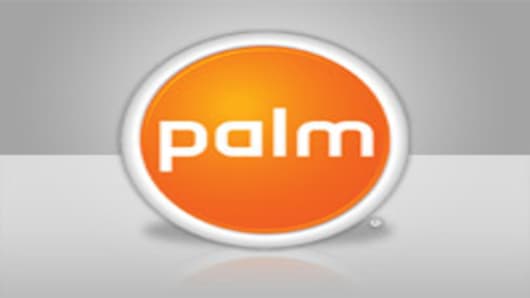So let's talk about Motorola and Palm for a second.
I have detailed deep issueswith Palm in recent posts.
Sure, there's those pesky questions of management credibility.
But more insidious is Palm's inability to crack the smart phone market.
Sales at US carriers including Sprint and Verizon have been extremely disappointing and the stock is in veritable free-fall. This could be a $4 stock way before it becomes a $7 or $8 stock.
It just can't gain any meaningful traction and the company continues to trip all over itself as it tries to grasp at anything and everything.
But its phones are neat, and so is its operating system.
Over at Motorola, its new Android-based handsets are getting nice reviews, the company is splitting up into two separate companies which should free up its handset business to grow and compete, and Motorola has committed to at least 20 new handsets in 2010 running Android.
But with that Apple/HTC lawsuit out there, and ongoing issues between China and Google that could spread to Google handset partners also trying to crack the Chinese market, Motorola and Palm might have a chance. Motorola is licensing Bing for Search in China as a way to hedge its bets there.
But why keep licensing?
Licensing Android, licensing Bing. Why rent when you can own? Motorola could own its own OS in Palm's WebOS, it could offer neat smart phones that move away from Google and offer some real alternatives in the marketplace.
Motorola has an intriguing handset vision. It wants a mobile OS that can just as easily power its set-top boxes, so that consumers could have a seamless connection from downloaded material in the living room and take it with you on the go. And Motorola has also indicated that if it had its druthers, and could start all over again, it would create its own operating system, and not necessarily use Android.
Palm's got that. And then some. And after last years inexplicable run-up, Motorola could buy this company for a song.
Palm would do well with Motorola's marketing muscle behind it, and Motorola's Sanjay Jha could turn Palm into an operational contender rather than the stumbling wannabe it has been. Palm's conference call in a couple of weeks when the company reports earnings should be an interesting event indeed.
Integration might take some time, but the payoff could be pretty compelling. Don't get me wrong, I'm not suggesting that a Palm/Motorola tie-up would mount any kind of meaningful challenge to Apple and RIM.
But with strength in numbers and critical mass so important in the smart phone arena today, a Palm/Motorola team could at least get decidedly larger crumbs than the two separately are scrounging for today.


